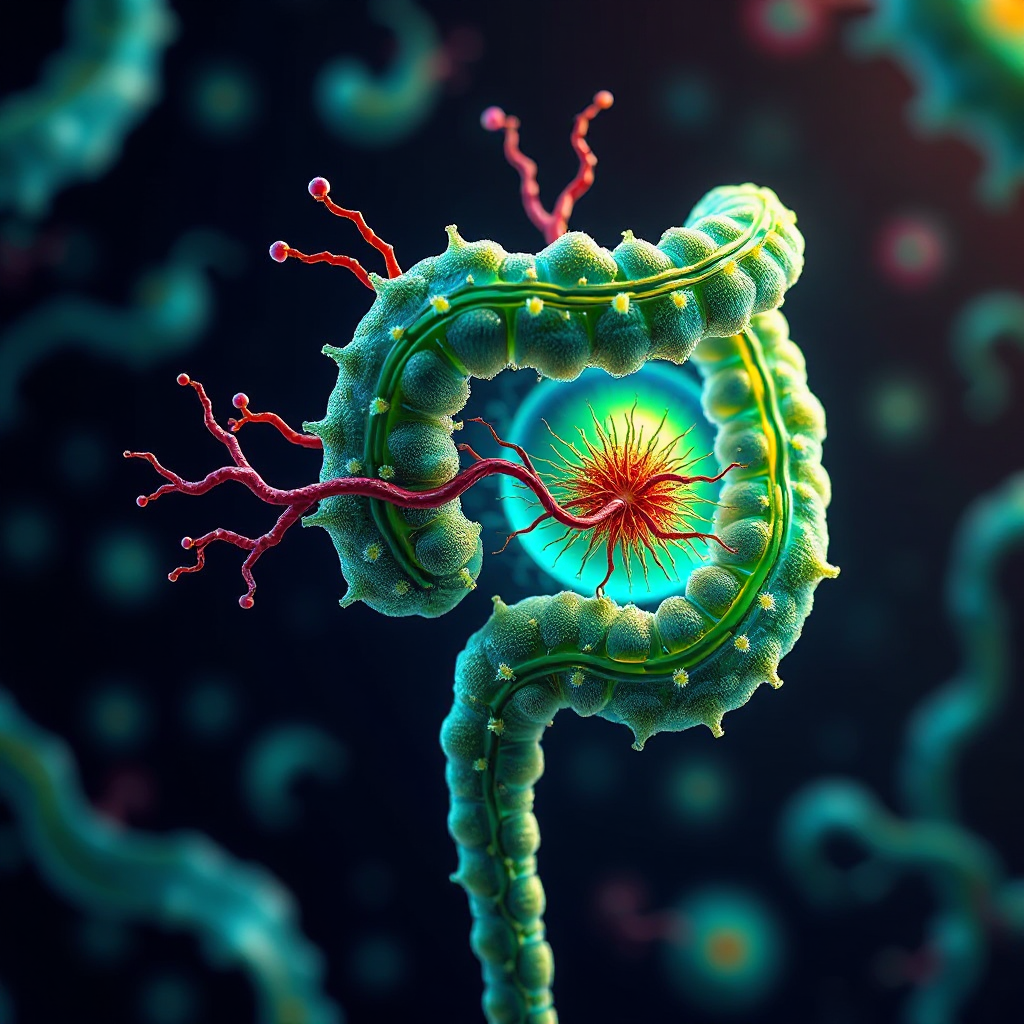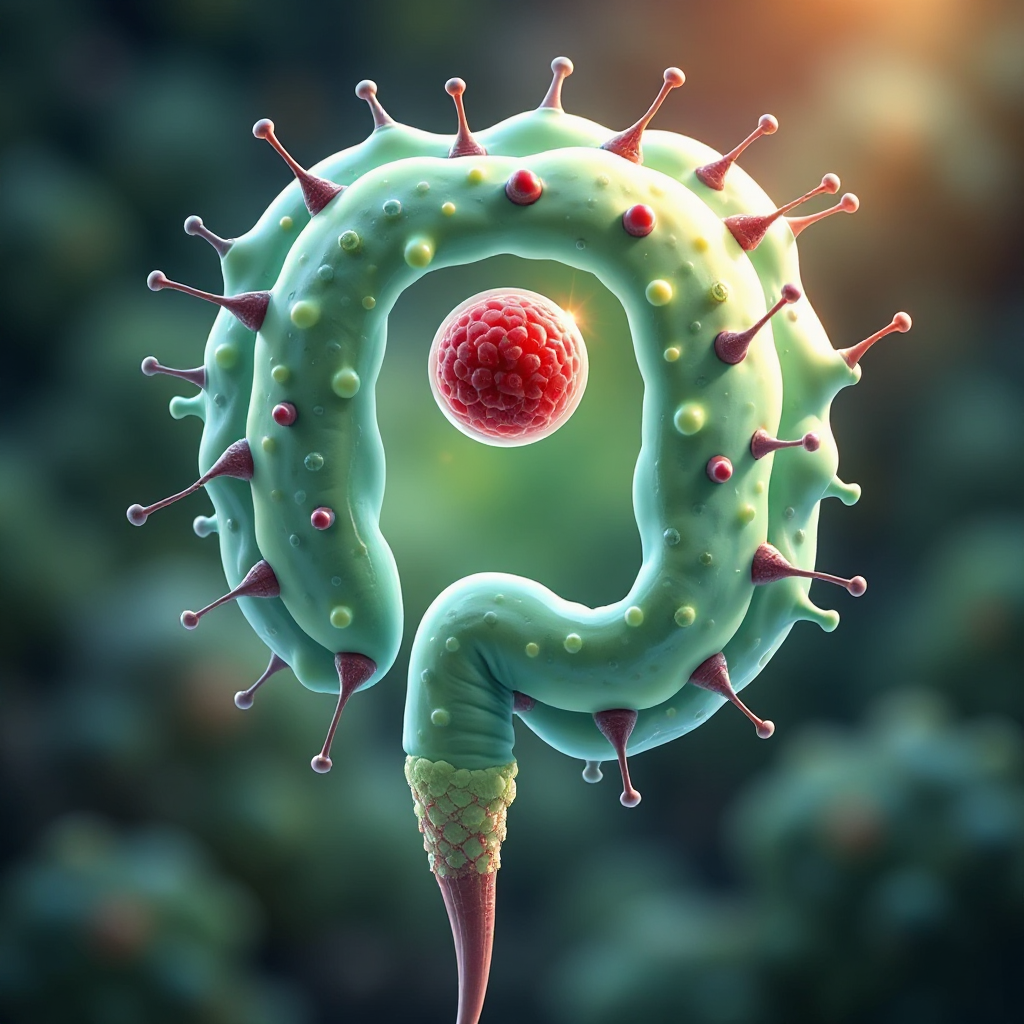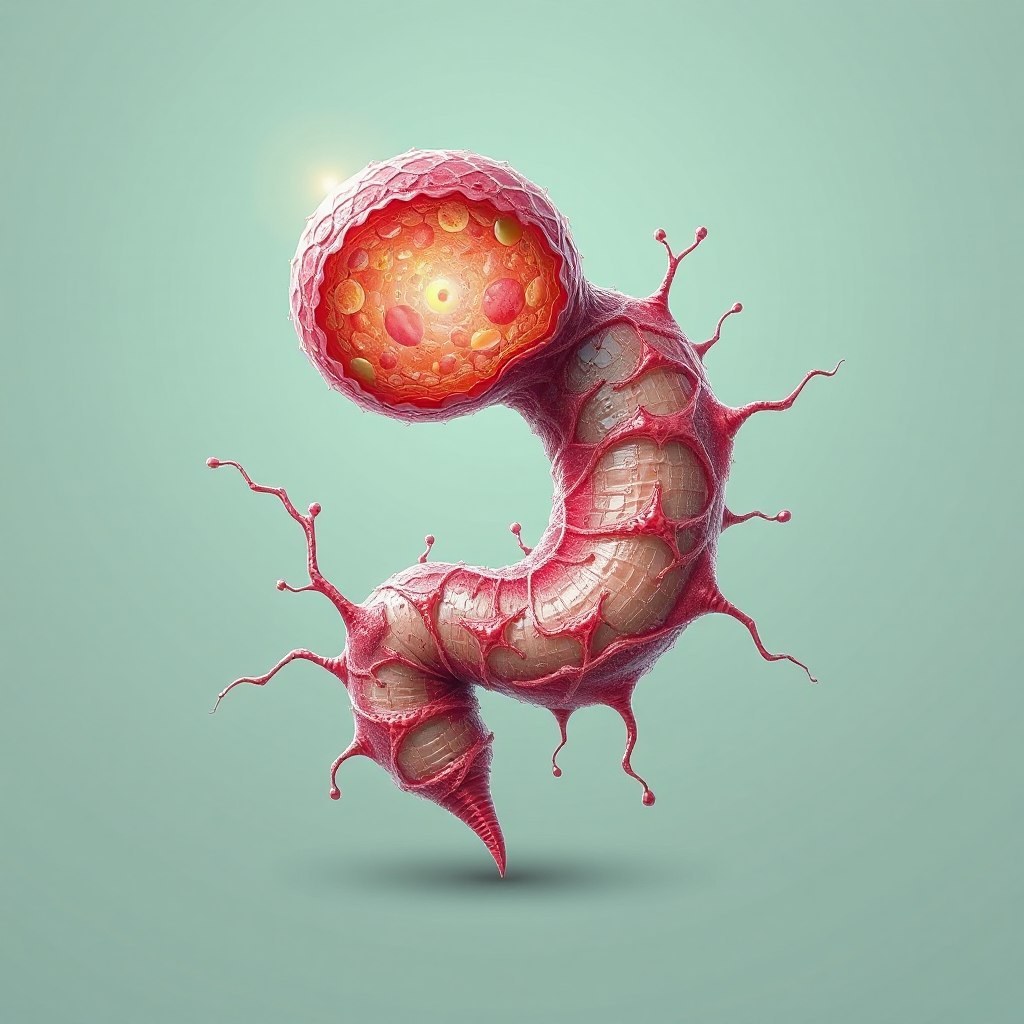What Are the Symptoms and Causes of Rectal Cancer

Rectal cancer often begins with subtle symptoms that you might overlook. Changes in bowel habits, rectal bleeding, or abdominal discomfort could signal its presence. See also: Colon Cancer. Early detection plays a vital role in improving survival rates. For localized cases, the five-year survival rate is 89 percent, while it drops to 16 percent for distant-stage cancer:
Stage | 5-Year Survival Rate |
|---|---|
Localized | 89 percent |
Regional | 72 percent |
Distant | 16 percent |
Understanding the causes can help you reduce your risk. Factors like age, family history, and lifestyle choices, such as smoking or a sedentary routine, contribute to its development. Recognizing these risks and acting early can make a significant difference.
Key Takeaways
Know the early signs of rectal cancer. These include changes in bathroom habits, bleeding from the rectum, and ongoing stomach pain. See a doctor if these last several days.
Learn your risk factors. A family history, smoking, and eating lots of processed meats can raise your chances of getting rectal cancer.
Focus on early detection. Getting regular check-ups starting at age 45 can find cancer early. This helps with better treatment and survival.
Pay attention to your health. If you lose weight without trying, feel very tired, or have lasting symptoms, talk to a doctor quickly.
Live a healthy life. Eat good food, exercise often, and don’t smoke to lower your risk of rectal cancer.
Symptoms of Rectal Cancer

Early-Stage Symptoms
Changes in bowel habits
You might notice changes in your bowel habits as one of the earliest signs of rectal cancer. These changes could include diarrhea, constipation, or stools that appear narrower than usual. If these symptoms persist for more than a few days, they may indicate an underlying issue.
Rectal bleeding or blood in the stool
Blood in your stool or bleeding from the rectum is another common early symptom. This bleeding might appear as bright red streaks or darker, tar-like stools. While not always caused by rectal cancer, it’s important to consult a doctor if you experience this symptom.
Persistent abdominal discomfort
Abdominal pain or cramping that doesn’t go away could also signal rectal cancer. You might feel discomfort or an urge to have a bowel movement even when there’s no need. These symptoms often overlap with other conditions, so paying attention to their persistence is crucial.
Advanced-Stage Symptoms
Unexplained weight loss
Losing weight without trying can be a warning sign of advanced rectal cancer. This occurs because cancer cells consume energy and may interfere with your body’s ability to absorb nutrients.
Fatigue or weakness
Excessive fatigue or a constant feeling of weakness often accompanies advanced stages of rectal cancer. This happens as your body diverts energy to fight the disease, leaving you feeling drained.
A feeling of incomplete bowel evacuation
You might feel like your bowel movements are incomplete, even after using the restroom. This sensation can result from a tumor obstructing the rectum, making it difficult to fully empty your bowels.
Symptoms of Metastatic Rectal Cancer
Pain in other areas of the body
When rectal cancer spreads, it can cause pain in other parts of your body, such as the back or pelvis. This pain often depends on where the cancer has metastasized.
Jaundice or liver-related symptoms
If rectal cancer spreads to the liver, you might develop jaundice. This condition causes yellowing of the skin and eyes, along with other liver-related symptoms like abdominal swelling.
Difficulty breathing
Metastatic rectal cancer can also affect your lungs, leading to breathing difficulties. You might experience shortness of breath or persistent coughing if the cancer has spread to this area.
Note: Metastatic symptoms vary depending on the organs affected. For example, liver metastases are more common in advanced stages, while bone metastases occur less frequently.
Variations in Symptoms by Demographic
Differences between men and women
Rectal cancer symptoms, such as blood in the stool, abdominal pain, and fatigue, appear the same for everyone, regardless of gender. You may experience unintentional weight loss, persistent diarrhea or constipation, or excessive tiredness. These symptoms do not differ between men and women. However, societal factors might influence how symptoms are reported. For instance, men may delay seeking medical advice, while women might attribute symptoms to other conditions like menstrual issues. Paying attention to persistent changes in your body is essential, no matter your gender.
Age-related symptom variations
Age plays a significant role in how rectal cancer symptoms manifest. If you are younger, you might dismiss symptoms like rectal bleeding or changes in bowel habits as minor issues. Older adults, on the other hand, may associate these symptoms with aging or other chronic conditions. Younger individuals often face delayed diagnoses because rectal cancer is less common in their age group. If you notice persistent symptoms, regardless of your age, consulting a healthcare provider is crucial. Early detection can improve outcomes and reduce complications.
Tip: Don’t ignore symptoms like rectal bleeding or unexplained weight loss, even if you think they are unrelated to rectal cancer. Early action can save lives.
Causes and Risk Factors of Rectal Cancer
Genetic Causes
Family history of rectal cancer
Having a family history of rectal cancer significantly increases your risk. If a first-degree relative, such as a parent or sibling, has had colorectal cancer, your chances of developing rectal cancer rise by approximately 37%. This risk doubles if the relative was diagnosed before the age of 50. Factors like smoking, a diet low in fruits and vegetables, and skipping regular screenings further elevate this risk.
Genetic syndromes like Lynch syndrome
Inherited genetic syndromes also play a major role in rectal cancer risk. Lynch syndrome, for example, results from mutations in mismatch repair (MMR) genes, which are responsible for fixing DNA errors. When these genes fail, genetic damage accumulates, leading to cancer. Lynch syndrome accounts for 2% to 4% of all colorectal cancers. Other syndromes, such as Familial Adenomatous Polyposis (FAP) and MYH-Associated Polyposis, also increase your risk by causing precancerous polyps in the colon and rectum.
Description | |
|---|---|
Familial Adenomatous Polyposis (FAP) | Numerous precancerous polyps in the colon and rectum. |
Lynch Syndrome | Increases risk of colorectal and other cancers like endometrial and ovarian. |
MYH-Associated Polyposis | Multiple precancerous polyps, similar to a milder form of FAP. |
Hyperplastic Polyposis Syndrome | Multiple hyperplastic polyps in the colon and rectum, with no known gene mutation. |
Lifestyle and Environmental Factors
Diets high in red or processed meats
Consuming large amounts of red or processed meats increases your risk of rectal cancer. These foods often contain carcinogens formed during high-temperature cooking, such as grilling or frying.
Smoking and alcohol consumption
Smoking raises your risk of dying from colorectal cancer by 30% to 40%. Excessive alcohol consumption also contributes to the development of rectal cancer, especially when combined with other risk factors.
Sedentary lifestyle and obesity
A sedentary lifestyle, including prolonged sitting or watching television, is linked to a higher risk of rectal cancer. Obesity, particularly excess fat around the waist, further increases this risk. Regular physical activity can help mitigate these effects.
Medical Conditions and Other Risk Factors
Inflammatory bowel disease
Chronic inflammation from conditions like ulcerative colitis or Crohn’s disease significantly raises your risk of rectal cancer. The longer you have these conditions, the higher your risk becomes. Regular screenings are essential for early detection.
Type 2 diabetes
If you have type 2 diabetes, your risk of rectal cancer is higher due to factors like elevated insulin levels and hyperglycemia. Obesity and physical inactivity, common in diabetes, also contribute to this increased risk.
History of polyps or colorectal cancer
A history of adenomatous polyps in the colon or rectum increases your likelihood of developing rectal cancer. Larger or more numerous polyps carry a higher risk. Regular screenings and polyp removal can reduce this risk.
Tip: Adopting a healthy lifestyle, including a balanced diet and regular exercise, can lower your risk of rectal cancer.
Importance of Early Detection

Why Early Detection Matters
Improved treatment outcomes
Detecting rectal cancer early can significantly improve your chances of successful treatment. At this stage, the cancer is often localized, meaning it hasn’t spread to other parts of your body. Early detection allows doctors to remove small, precancerous polyps before they develop into something more serious. This proactive approach can transform a potentially life-threatening condition into one that is manageable and treatable.
Stage | Survival Rate |
|---|---|
Localized | 91% |
Regional | 72% |
Distant | 13% |
Reduced risk of metastasis
When caught early, rectal cancer is less likely to spread to other organs. This reduces the risk of metastasis, which can complicate treatment and lower survival rates. Early detection not only improves your prognosis but also minimizes the need for aggressive treatments like chemotherapy or radiation.
Tip: Regular screenings, even when you feel healthy, play a critical role in catching cancer early and improving outcomes.
When to Consult a Doctor
Persistent symptoms
Certain symptoms should prompt you to seek medical advice. These include:
Persistent changes in bowel habits, such as diarrhea or constipation
Unexplained abdominal pain or cramping
A constant urge to have a bowel movement, even after using the restroom
Unintended weight loss or persistent fatigue
Ignoring these signs can delay diagnosis and treatment.
Family history of rectal cancer
If you have a family history of rectal cancer, you should consult a doctor even if you feel fine. Your risk increases if a close relative was diagnosed, especially before age 50. Discussing your family history with a healthcare provider can help determine the right screening schedule for you.
Screening for high-risk individuals
High-risk individuals may need to start screening earlier than the standard age of 45. Depending on your personal and family health history, your doctor might recommend more frequent screenings or specific tests. These could include colonoscopies or stool-based tests to detect abnormalities.
Note: Early action can save lives. If you notice persistent symptoms or have a family history, don’t wait to consult a healthcare professional.
Rectal cancer symptoms, such as rectal bleeding or changes in bowel habits, require your attention. Ignoring these signs can delay diagnosis and treatment. Risk factors like a diet high in processed meats, smoking, and obesity increase your chances of developing this condition. Family history, inflammatory bowel disease, and age also play significant roles.
Common symptoms include:
Blood in your stool
Persistent abdominal pain or cramping
Unexplained weight loss or fatigue
If you notice these symptoms or have a family history of rectal cancer, consult a healthcare professional. Early detection can save lives.
FAQ
What are the early warning signs of rectal cancer?
Early signs include changes in bowel habits, rectal bleeding, and abdominal discomfort. You might also notice narrower stools or a persistent urge to have a bowel movement. If these symptoms last more than a few days, consult your doctor for evaluation.
Can rectal cancer be prevented?
You can reduce your risk by maintaining a healthy lifestyle. Eat a diet rich in fruits, vegetables, and whole grains. Avoid smoking, limit alcohol, and stay physically active. Regular screenings also help detect precancerous polyps early, preventing cancer from developing.
At what age should you start screening for rectal cancer?
Most people should begin screening at age 45. If you have a family history or other risk factors, your doctor might recommend starting earlier. Regular screenings are essential for early detection and better outcomes.
How is rectal cancer diagnosed?
Doctors use tests like colonoscopies, imaging scans, and biopsies to diagnose rectal cancer. A colonoscopy allows them to examine your rectum and collect tissue samples for analysis. Early diagnosis improves treatment success rates.
Is rectal cancer treatable?
Yes, rectal cancer is treatable, especially when detected early. Treatment options include surgery, chemotherapy, and radiation therapy. Your doctor will recommend a plan based on the cancer’s stage and your overall health.
Tip: Early detection increases the chances of successful treatment. Don’t ignore persistent symptoms.
---
ℹ️ Explore more: Read our Comprehensive Guide to All Known Cancer Types for symptoms, causes, and treatments.
See Also
Exploring Colon Cancer: Symptoms And Their Underlying Causes
Anal Cancer: Key Symptoms And Contributing Factors Explained
Bladder Cancer Symptoms And Causes: What You Need To Know

